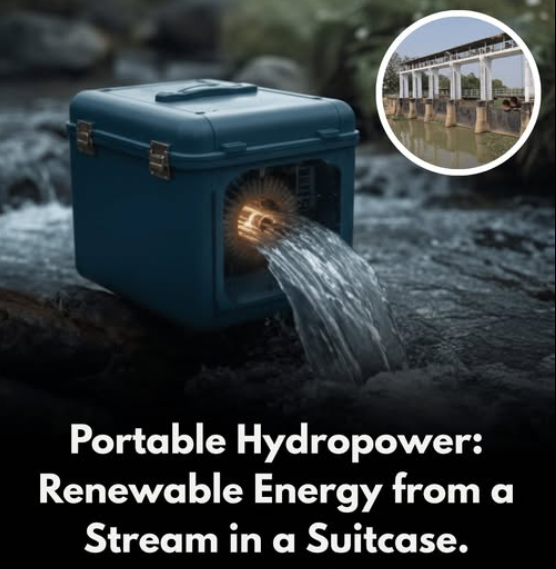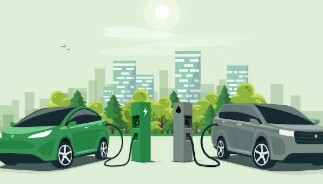Electric Vehicle
Netherlands’ journey towards electric mobility
The Netherlands, a country renowned for its progressive environmental policies and commitment to sustainability, has emerged as a trailblazer in the realm of electric vehicles (EVs).
With a robust charging infrastructure, strong government support, and a culture that embraces sustainable transportation, the Netherlands is leading the way towards a greener future.
In this article, we delve into the Netherlands’ journey towards electric mobility, examine the key factors driving its success, and explore the transformative impact of electric vehicles on the country’s sustainable transportation landscape.
Government Initiatives and Support:
The Dutch government has been instrumental in promoting the widespread adoption of electric vehicles.
It has implemented various incentives and policies to encourage EV ownership. These include generous tax breaks, exemptions from registration fees, and reduced road taxes for electric vehicle owners. Furthermore, the government has set ambitious targets, aiming for all new cars sold in the Netherlands to be emission-free by 2030. Such initiatives have created a favorable environment for electric vehicles and have stimulated consumer demand.
Expansive Charging Infrastructure:
The Netherlands boasts one of the most extensive charging networks in the world, making it convenient and accessible for EV owners to charge their vehicles. The government, in collaboration with private entities, has invested significantly in expanding the charging infrastructure, with a focus on both public and private charging stations. The country offers a diverse range of charging options, including fast-charging stations along highways, urban charging points, and workplace charging facilities. This comprehensive charging infrastructure alleviates range anxiety and supports long-distance travel, encouraging more individuals to embrace electric mobility.
Integrated Approach to Sustainable Energy:
The Netherlands’ commitment to sustainable energy production has greatly contributed to the success of electric vehicles. The country has made significant strides in harnessing renewable energy sources, such as wind and solar power. By integrating renewable energy into the electric vehicle ecosystem, the Netherlands ensures that EVs are powered by clean and low-carbon electricity. This synergy between renewable energy and electric mobility amplifies the environmental benefits, reducing greenhouse gas emissions and minimizing air pollution.
Economic Opportunities and Job Creation:
The transition to electric vehicles in the Netherlands has created new economic opportunities and stimulated job growth. The country’s focus on sustainable transportation has fostered the emergence of a thriving electric vehicle industry. Dutch companies are at the forefront of EV manufacturing, charging infrastructure development, and battery technology innovation. This not only strengthens the local economy but also positions the Netherlands as a global leader in the electric mobility sector.
Innovation and Collaboration:
The Netherlands prides itself on fostering innovation and collaboration among various stakeholders. The government, academia, research institutions, and industry leaders collaborate to drive advancements in electric vehicle technology and infrastructure. This collaborative ecosystem enables the development of cutting-edge solutions, such as smart charging technologies, vehicle-to-grid integration, and battery innovations. The Netherlands’ culture of collaboration and innovation propels its electric mobility sector forward and serves as a model for other countries striving to transition to sustainable transportation.
Netherlands Tax Incentive for Electric Vehicle
The Netherlands was one of the leading countries in terms of electric vehicle (EV) adoption.
Here are some facts and data about electric vehicles in the Netherlands up to that time:
1. High EV Adoption: The Netherlands had one of the highest electric vehicle adoption rates in the world. According to the International Energy Agency (IEA), EVs accounted for around 18% of total passenger car sales in the country in 2020.
2. Charging Infrastructure: The Netherlands has made significant investments in charging infrastructure to support the growing number of EVs. It had an extensive network of public charging stations, including both standard chargers and fast chargers, spread across the country. In 2021, there were approximately 60,000 public charging points available.
3. Incentives and Subsidies: The Dutch government provided various incentives and subsidies to promote EV adoption. These included tax benefits, exemptions from certain road taxes, reduced company car taxes for electric vehicles, and purchase subsidies for both new and used electric cars.
4. EV Market Share: In terms of market share, electric vehicles had a substantial presence in the Dutch automotive market. Several popular electric models, such as the Tesla Model 3, Nissan Leaf, and Volkswagen ID.3, were among the top-selling cars in the country.
5. Government Targets: The Dutch government has set ambitious targets to accelerate the transition to electric vehicles. By 2030, they aimed to have all new passenger cars sold being zero-emission vehicles, effectively banning the sale of new internal combustion engine (ICE) cars.
It’s important to note that the EV landscape is constantly evolving, and new developments might have occurred since my last knowledge update. For the most up-to-date and accurate information, I recommend referring to recent reports, government sources, or industry publications specific to the Netherlands.
The Netherlands’ relentless pursuit of sustainable transportation through the adoption of electric vehicles sets a remarkable example for the world.
Conclusion Finland’s Drive Towards Electric Mobility
Through robust government support, an expansive charging infrastructure, and an integrated approach to renewable energy, the Netherlands has created an ecosystem that encourages the widespread adoption of electric vehicles.
The country’s leadership in electric mobility not only yields significant environmental benefits but also creates economic opportunities and fosters innovation. As the Netherlands continues its journey towards a greener future, its success serves as an inspiration for nations worldwide to prioritize electric mobility and drive positive change in the transportation sector.
https://www.exaputra.com/2023/07/the-netherlands-pioneering-electric.html
Renewable Energy
Renewable Energy Concepts Can’t Violate the Laws of Physics
 In the early days of 2GreenEnergy, my people and I were vigorously engaged in finding solid ideas in cleantech that needed funding in order to move forward.
In the early days of 2GreenEnergy, my people and I were vigorously engaged in finding solid ideas in cleantech that needed funding in order to move forward.
I vividly remember a conversation with a guy in Maryland who was trying to explain the (ostensible) breakthrough that he and his team had made in hydrokinetics. When I was having trouble visualizing what we was talking about, he asked me to “think of it as a river in a box.”
“Oh!” I exclaimed. “You mean you take a box full of standing water, add energy to it get it moving, then extract that energy, leaving you with more energy that you added to it.”
“Exactly.”
I politely explained that the laws of physics, specifically the first and second laws of thermodynamics, make this impossible.
He wasn’t through, however, and insisted that, in his office, his people had constructed a “working model.”
Here’s where my tone descended into something less than 100% polite. I told him that he may think he has a working model, but he’s wrong; if he believes this, he’s ignorant; if he doesn’t, but is conducting this conversation anyway, he’s a fraud.
“But don’t you want to come see it?” he implored.
“No. Not only would not fly across the country to see whatever it is you claim to have built, I wouldn’t walk across the street to a “working model” of something that is theoretically impossible.”
—
I tell this story because the claim made at the upper left is essentially identical. You’re pumping water up out of a stream, and then claiming to extract more energy when the water flows back into the stream.
Of course, social media today is rife with complete crap like this. We’ve devolved to a point where defrauding money out of idiots is rapidly replacing baseball as our national pastime.
Renewable Energy
What Canada Has that the U.S. Doesn’t
 Until recently, I would have moose, maple syrup, and frozen tundra.
Until recently, I would have moose, maple syrup, and frozen tundra.
Now I would say: decency, honesty, and class.
Renewable Energy
Not Sure About Zero Illegals, But . . .
 I’m ready to live in a country with zero hateful morons, if that counts.
I’m ready to live in a country with zero hateful morons, if that counts.
-
Greenhouse Gases7 months ago
Guest post: Why China is still building new coal – and when it might stop
-
Climate Change7 months ago
Guest post: Why China is still building new coal – and when it might stop
-

 Greenhouse Gases2 years ago
Greenhouse Gases2 years ago嘉宾来稿:满足中国增长的用电需求 光伏加储能“比新建煤电更实惠”
-
Climate Change2 years ago
Bill Discounting Climate Change in Florida’s Energy Policy Awaits DeSantis’ Approval
-
Climate Change2 years ago
Spanish-language misinformation on renewable energy spreads online, report shows
-

 Climate Change2 years ago
Climate Change2 years ago嘉宾来稿:满足中国增长的用电需求 光伏加储能“比新建煤电更实惠”
-
Climate Change Videos2 years ago
The toxic gas flares fuelling Nigeria’s climate change – BBC News
-

 Carbon Footprint2 years ago
Carbon Footprint2 years agoUS SEC’s Climate Disclosure Rules Spur Renewed Interest in Carbon Credits







